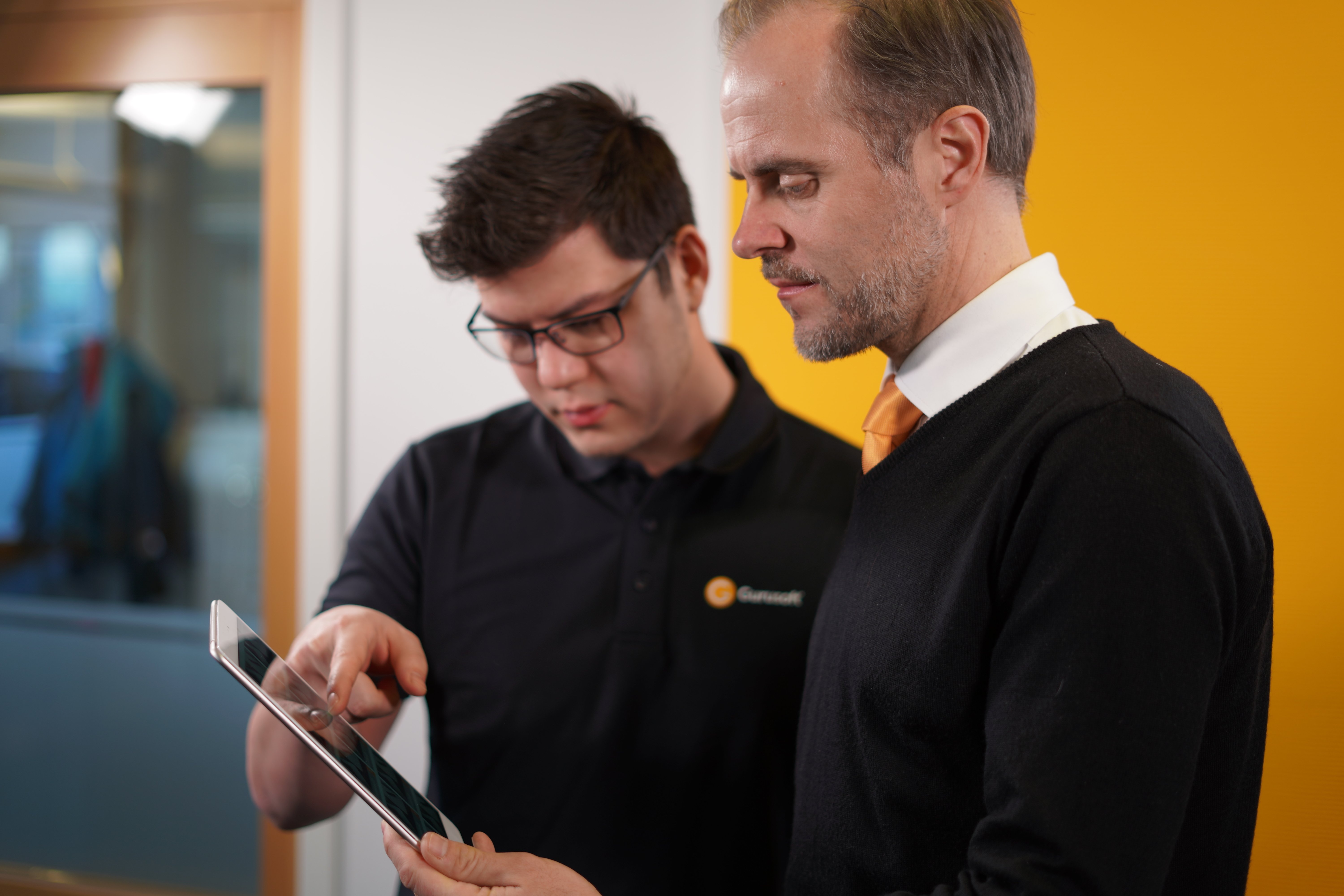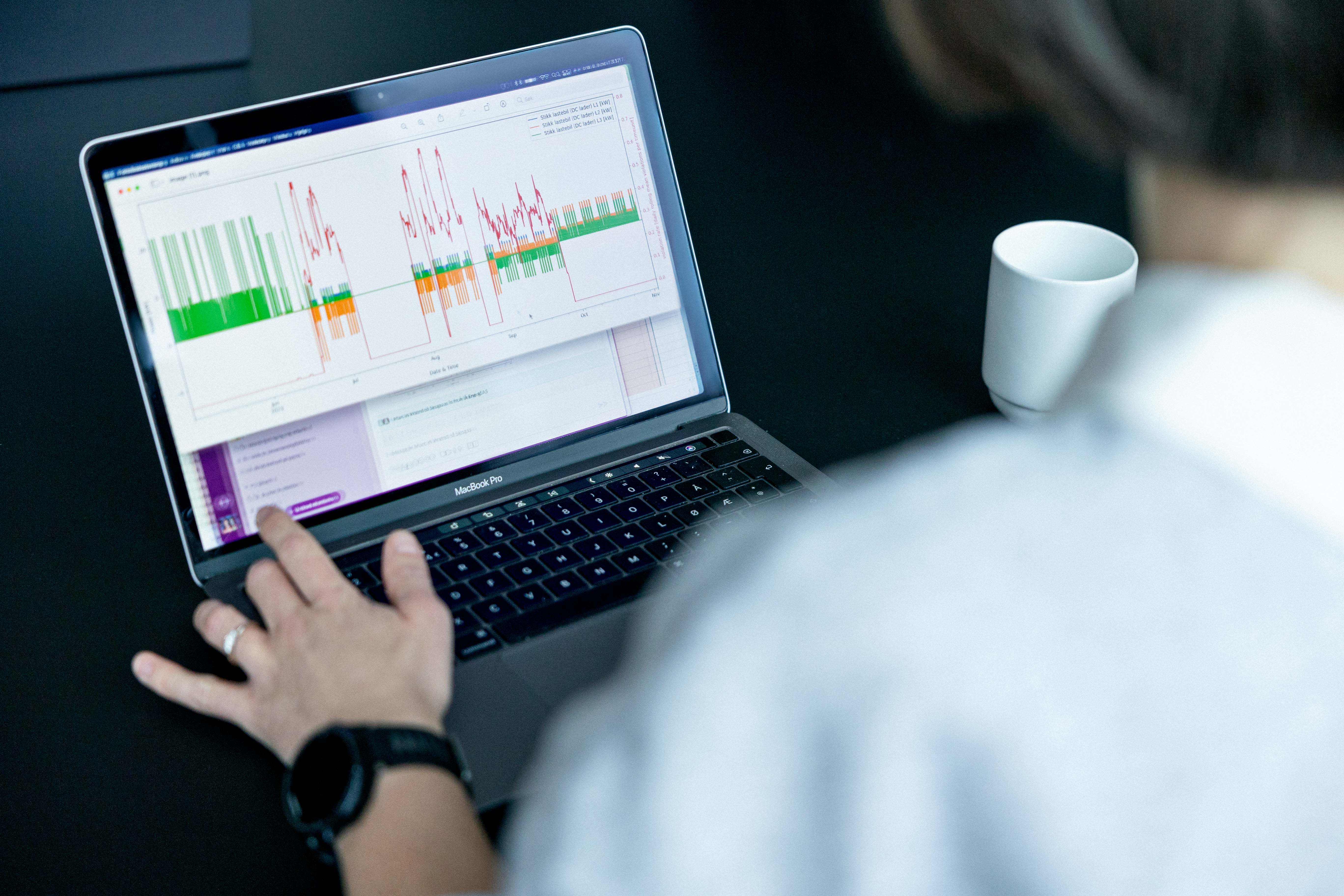Energy efficiency: Where to begin?
The good thing about starting to work with energy efficiency is that you will save money and energy from the start. The challenge, however, is knowing where to begin.
By Mari Tenden

Gurusoft EMS in use
We asked Jan Erik Gran, Head of Sales at Gurusoft, that question. His answer is quick and clear: "You need to start by understanding your own energy consumption."
Gain insight with an EMS
Without insight in your own consumption, it’s hard to know what to do and where to focus.

Establishing an EMS is probably one of the most important things to reduce energy consumption, according to Gurusoft's Jan Erik Gran.
"An Energy Management System (EMS) requires small investments and can be implemented by all types of businesses – regardless of whether they are building owners or tenants, large or small. Knowledge about your own energy consumption makes you better equipped to gain control," Gran explains.
With volatile energy prices, there is an enormous saving potential for many businesses. A modest estimate from Norwegian Enova says that just by establishing an EMS, you will save three to five percent of your electricity costs. Gurusoft's experience is that companies often save more.
"This is a lot of money for many businesses" Gran emphasizes.
👉 Read more about efficient energy management.
The benefits of good data
"It is the same with data as with everything else: If you have shit going in, you will get shit out. You need to focus on data quality and question how the data is quality assured. Also, make sure you can easily keep track yourself," advises Gran.
To Jan Erik Gran, the most important thing is that the user understands their data.
"You need to get the numbers in a context that makes sense."
In his opinion, there is far too much sloppiness with energy data. He highlights one example:
"If you monitor and see that your consumption decreases slightly every year, it's easy to think that you're doing well. The boss is happy, and you save a few percent on electricity consumption. But what if you still use much more than you should? You could have saved even more, without even knowing it. Is that good enough?"
Do you have time to save money?
To save money with an EMS, you need to actively use it. Or, as Gran puts it: It doesn't help to have a new car if it's just going to stay in the garage. He is surprised that many companies don't take advantage of the opportunities and saving potential that lie in actually using the data they already receive.
"Do you have time to save money?" Gran asks rhetorically. "You need to invest time, resources, and commitment."
He also reminds us that an EMS is an important tool for documenting the effect of various measures you take, for instance when reporting on sustainability and climate impact.
Reduced consumption by 17 percent
Gurusoft has had customers who have achieved significant savings by engaging a little more.
"We have a customer who reduced their electricity consumption by 17 percent, simply by gaining control of their consumption and adjusting behavior - without any major investments."
It can be as simple as reducing consumption on weekends and nights when no one is at work; do a check on the building, and engage everyone internally, explains Gran, who believes it pays off to make a sport out of saving on electricity.
"If you bother to do anything, it will save you money!"
What's an EMS?
Energy Management Systems are used to monitor, visualize, and analyze energy consumption, for example in a building, a facility, or an industrial process. The purpose is to provide detailed information on how energy is used, identify areas of high energy consumption or inefficiency, and provide a basis for implementing measures to reduce energy consumption and costs.
An EMS can include sensors and measuring instruments that monitor electricity consumption, heating, cooling, water consumption, and other energy-related data. The collected information is processed and visualized through software interfaces, or dashboards, so that you can analyze energy consumption patterns and identify areas for improvement.
EMS systems are especially useful for those who want to optimize energy efficiency, reduce environmental impact, and reduce energy costs.
Advantages of having an EMS
The benefits of having an EMS are many. Gran lists the following as the most important:
- Energy expenses are reduced
- The staff becomes more energy conscious
- Faults in systems and equipment are detected earlier
- Better overview of energy flow and energy consumption
- Better basis for evaluating operational routines
- Positive profiling towards tenants and society
- Comparable figures for multiple buildings
- Better prepared for price changes


